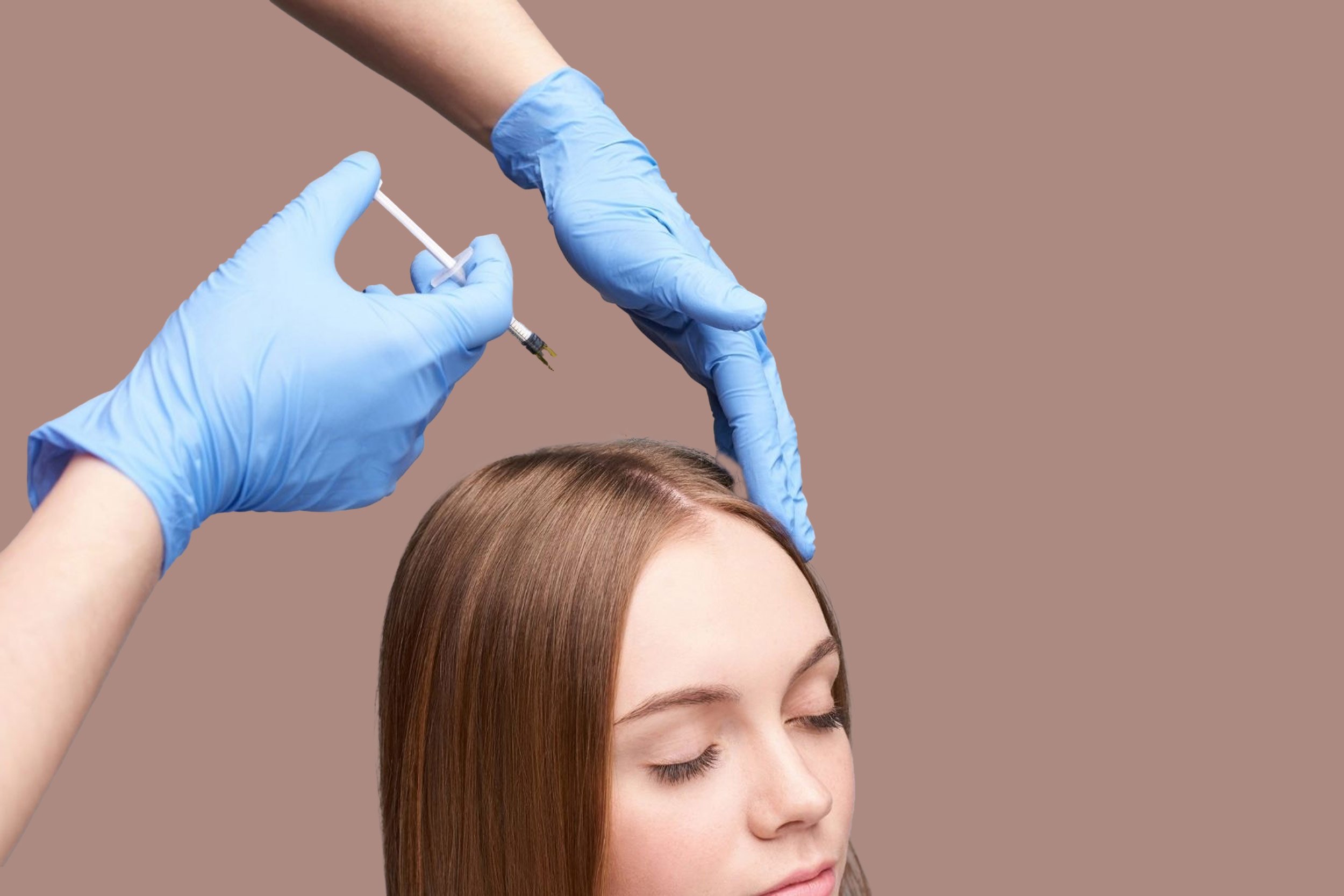Why PRP is Effective for Hair Restoration
PRP therapy works by utilizing the body’s own platelets, which are rich in growth factors, to stimulate the hair follicles and promote new growth. Here’s why it’s an effective treatment for hair restoration:
1. Stimulates Dormant Hair Follicles: Hair follicles go through different phases: growth, rest, and shedding. In cases of thinning hair, many follicles remain in the resting phase for extended periods, leading to reduced hair density. PRP injections into the scalp can “wake up” these dormant follicles, encouraging them to re-enter the growth phase. The growth factors in PRP signal the follicles to produce thicker, healthier hair strands.
2. Enhances Blood Supply to the Hair Follicles: A healthy blood supply is crucial for hair growth. PRP therapy improves blood circulation to the scalp, ensuring that the hair follicles receive the necessary nutrients and oxygen to thrive. This increased blood flow not only supports existing hair but also strengthens and revitalizes weakened follicles, making them more capable of producing hair.
3. Natural and Minimally Invasive: PRP therapy is a natural treatment, as it uses your own blood, eliminating the risk of allergic reactions or adverse effects. The procedure involves drawing a small amount of your blood, processing it to concentrate the platelets, and then injecting the PRP directly into the scalp. The process is minimally invasive, with little to no downtime, allowing you to return to your daily activities soon after the treatment.
4. Long-Lasting Results: PRP therapy offers long-lasting results, particularly when combined with a series of treatments. While individual results may vary, many patients begin to see improvements in hair thickness and density within a few months of starting treatment. Continued PRP sessions can sustain and enhance these results, making it a valuable long-term solution for hair restoration.
Who Might Not Be a Good Candidate for PRP Hair Restoration?
While PRP is effective for many people, it’s not suitable for everyone. Here are somecases where PRP might not be the best option:
1. Advanced Hair Loss: PRP is most effective for individuals experiencing early- stage hair loss or thinning hair. If you have significant hair loss or your hair follicles are no longer active, PRP may not be able to restore hair growth effectively. In such cases, other treatments, like hair transplantation, might be more appropriate.
2. Scalp Conditions: Individuals with certain scalp conditions, such as active infections, inflammation, or severe dandruff, may not be good candidates for PRP therapy. These conditions can interfere with the treatment’s effectiveness and may need to be addressed before considering PRP.
3. Blood Disorders or Medications: If you have a blood disorder, such as platele dysfunction syndrome or chronic liver disease, or if you’re on blood thinners, PRP may not be recommended. These conditions can affect the quality of the PRP and its ability to stimulate hair growth effectively.
4. Pregnancy or Breastfeeding: While PRP is a natural treatment, it’s generally advised to avoid elective procedures during pregnancy or breastfeeding unless medically necessary. It’s best to consult with your healthcare provider to determine the right time to start PRP therapy.
5. Unrealistic Expectations: PRP can significantly improve hair density and slow down hair loss, but it’s not a miracle cure. Patients with unrealistic expectations may not be satisfied with the results. It’s essential to have a thorough consultation to understand what PRP can and cannot achieve.
Conclusion
PRP therapy offers a natural and effective solution for hair restoration, particularly for those in the early stages of hair loss. By stimulating dormant hair follicles and enhancing blood supply to the scalp, PRP can help you regain thicker, healthier hair.
However, it’s important to understand that PRP may not be suitable for everyone. Factors such as the extent of hair loss, underlying scalp conditions, and overall health can influence the success of the treatment. At SkinSunday, we’re here to guide you through your hair restoration journey, ensuring that PRP is the right choice for you.

